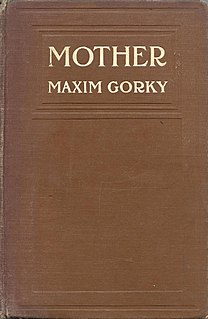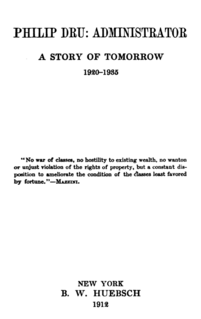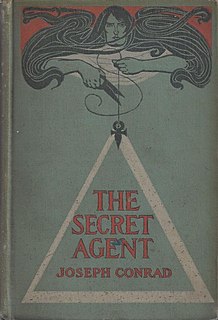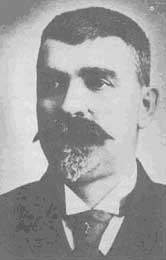 W
W1985 is a novel by English writer Anthony Burgess. Originally published in 1978, it was inspired by, and was intended as a tribute to, George Orwell's novel Nineteen Eighty-Four.
 W
WAnd Quiet Flows the Don or Quietly Flows the Don is an epic novel in four volumes by Russian writer Mikhail Alexandrovich Sholokhov. The first three volumes were written from 1925 to 1932 and published in the Soviet magazine Oktyabr in 1928–1932, and the fourth volume was finished in 1940. The English translation of the first three volumes appeared under this title in 1934.
 W
WAnimal Farm is an allegorical novella by George Orwell, first published in England on 17 August 1945. The book tells the story of a group of farm animals who rebel against their human farmer, hoping to create a society where the animals can be equal, free, and happy. Ultimately, however, the rebellion is betrayed, and the farm ends up in a state as bad as it was before, under the dictatorship of a pig named Napoleon.
 W
WDarkness at Noon is a novel by Hungarian-born British novelist Arthur Koestler, first published in 1940. His best known work, it is the tale of Rubashov, an Old Bolshevik who is arrested, imprisoned, and tried for treason against the government that he helped to create.
 W
WDemons is a novel by Fyodor Dostoevsky, first published in the journal The Russian Messenger in 1871–72. It is considered one of the four masterworks written by Dostoevsky after his return from Siberian exile, along with Crime and Punishment (1866), The Idiot (1869) and The Brothers Karamazov (1880). Demons is a social and political satire, a psychological drama, and large-scale tragedy. Joyce Carol Oates has described it as "Dostoevsky's most confused and violent novel, and his most satisfactorily 'tragic' work." According to Ronald Hingley, it is Dostoevsky's "greatest onslaught on Nihilism", and "one of humanity's most impressive achievements—perhaps even its supreme achievement—in the art of prose fiction."
 W
WFanny Campbell, the Female Pirate Captain: A Tale of the Revolution is an 1844 American novel by Maturin Murray Ballou, about a woman who goes to sea to rescue her fiancé and becomes commander of a pirate ship. The popularity of its heroine continued long after the book was published, with some writers publishing accounts of Fanny Campbell as if she were real.
 W
WThe General in His Labyrinth is a 1989 dictator novel by Colombian writer and Nobel laureate Gabriel García Márquez. It is a fictionalized account of the last seven months of Simón Bolívar, liberator and leader of Gran Colombia. The book traces Bolívar's final journey from Bogotá to the Caribbean coastline of Colombia in his attempt to leave South America for exile in Europe. Breaking with the traditional heroic portrayal of Bolívar El Libertador, García Márquez depicts a pathetic protagonist, a prematurely aged man who is physically ill and mentally exhausted. The story explores the labyrinth of Bolívar's life through the narrative of his memories, in which "despair, sickness, and death inevitably win out over love, health, and life".
 W
WThe Good Terrorist is a 1985 political novel written by the British novelist Doris Lessing. The book's protagonist is the naïve drifter Alice, who squats with a group of radicals in London and is drawn into their terrorist activities.
 W
WHow the Steel Was Tempered or The Making of a Hero, is a socialist realist novel written by Nikolai Ostrovsky (1904–1936). Pavel ("Pavka") Korchagin is the central character.
 W
WThe Informer is a novel by Irish writer Liam O'Flaherty published in 1925. It received the 1925 James Tait Black Memorial Prize.
 W
WMother is a novel written by Maxim Gorky in 1906 about revolutionary factory workers. It was first published, in English, in Appleton's Magazine in 1906, then in Russian in 1907.
 W
WThe Night Eternal is a 2011 vampire horror novel by Guillermo del Toro and Chuck Hogan. It is the final novel in The Strain Trilogy beginning with The Strain and continuing with The Fall.
 W
WNineteen Eighty-Four: A Novel, often published as 1984, is a dystopian social science fiction novel by English novelist George Orwell. It was published on 8 June 1949 by Secker & Warburg as Orwell's ninth and final book completed in his lifetime. Thematically, Nineteen Eighty-Four centres on the consequences of totalitarianism, mass surveillance, and repressive regimentation of persons and behaviours within society. Orwell, himself a democratic socialist, modelled the authoritarian government in the novel after Stalinist Russia. More broadly, the novel examines the role of truth and facts within politics and the ways in which they are manipulated.
 W
WPetersburg is a novel by Russian writer Andrei Bely. A Symbolist work, it arguably foreshadows James Joyce's Modernist ambitions. First published in 1913, the novel received little attention and was not translated into English until 1959 by John Cournos, over 45 years after it was written.
 W
WPhilip Dru: Administrator: A Story of Tomorrow, 1920-1935 is a futuristic political novel published in 1912 by Edward Mandell House, an American diplomat, politician, and presidential foreign policy advisor. The book's author was originally unknown with an anonymous publication, however House's identity was revealed in a speech on the Senate floor by Republican Senator Lawrence Sherman. According to historians, House highly prized his work and gave a copy of Dru to his closest political ally, Woodrow Wilson, to read while on a trip to Bermuda.
 W
WSankya is a 2006 novel by the Russian writer Zakhar Prilepin. Sankya is a story about Sasha Tishin, member of The Founders - revolutionary organization, similar to National Bolshevik Party.
 W
WThe Secret Agent: A Simple Tale is a novel by Joseph Conrad, first published in 1907. The story is set in London in 1886 and deals with Mr Adolf Verloc and his work as a spy for an unnamed country. The Secret Agent is one of Conrad's later political novels in which he moved away from his former tales of seafaring. The novel is dedicated to H. G. Wells and deals broadly with anarchism, espionage and terrorism. It also deals with exploitation of the vulnerable in Verloc's relationship with his brother-in-law Stevie, who has a learning difficulty. Conrad’s gloomy portrait of London depicted in the novel was influenced by Charles Dickens’ Bleak House.
 W
WShekhar: Ek Jivani is an unfinished Hindi-language novel by Indian writer Sachchidananda Vatsyayan, also known by his pen-name, Agyeya. Published in two parts, with a third part that has yet to see the light of day, Ek Jivani is semi-biographical in nature and is considered to be Agyeya's magnum opus.
 W
WUnder the Yoke, with subtitle A Romance of Bulgarian Liberty is a historical novel by Bulgarian author Ivan Vazov written in 1887-1888 and published in parts 1889–1890 in a magazine The Collection of Folk Tales and in a single book 1894. It is set in a small town in Central Bulgaria during the months leading up to the April Uprising in 1876 and is the most famous piece of classic Bulgarian literature. Under the Yoke has been translated into more than 30 languages. The English translation was made in 1894 by William Morfill and published by the London publishing house William Heinemann.